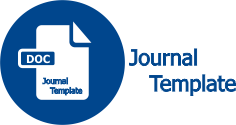Pengembangan Perangkat Pembelajaran Elektronik Berbasis STEAM untuk Meningkatkan Minat dan Hasil Belajar
(1) Universitas Negeri Makassar
(2) Universitas Negeri Makassar
(3) Universitas Negeri Makassar
(*) Corresponding Author
DOI: https://doi.org/10.26858/cer.v5i2.32731
Abstract
Keywords
Full Text:
PDFReferences
Annisa, R., Effendi, M. H., dan Damris. (2019). Peningkatan Kemampuan Berpikir Kreatif Siswa Dengan Menggunakan Model Project Based Learning Berbasis STEAM (Science, Technology, Engineering, Arts Dan Mathematic) Pada Materi Asam dan Basa Di SMAN 11 Kota Jambi. Program Studi Magister Pendidikan Kimia, Program Pasca Sajana, Universitas Jambi, Indonesia. Journal of The Indonesian Society of Integrated Chemistry, DOI: 10.22437/jisic.v10i2.651
Hadinugrahaningsih, T., Rahmawati, Y., Ridwan, A., Budiningsih, A., Suryani, E., Nurlitiani, a., & Fatimah., C. (2017) . Keterampilan Abad 21 dan STEAM (Science, Technology, Engineering, Art And Mathematics) Project Dalam Pembelajaran Kimia. Jakarta: LPPM Universitas Negeri Jakarta.
Rahmatina, C. A., Jannah, M., dan Annisa, F. (2020). Pengembangan Bahan Ajar Berbasis Science, Technology, Engineering, and Mathematics (STEM) di SMA/MA. Program Studi Pendidikan Fisika, Fakultas Tarbiyah dan Keguruan UIN Ar-Raniry Banda Aceh Jurnal Phi. Jurnal Pendidikan Fisika dan Fisika Terapan, 1(1), 27-33.
Septiani, I., Lesmono, A., D., & Harimukti. (2020). Analisis Minat Belajar Siswa Menggunakan Model Problem Based Learning Dengan Pendekatan STEM Pada Materi Vektor Di Kelas X MIPA 3 SMAN 2 Jember. Jurnal Pembelajaran Fisika, 9(2), 64-70.
Sujito, Selitadwi, S. S., Wisodo, H., Asim, Masjkur., & Kusairi, S. (2018). Pengembangan Perangkat Pembelajaran Science, technology, Engineering and Mathematic Dengan Modifikasi ADDIE Sub Materi Suhu. Seminar Nasional FST Universitas Kanjuruhan Malang. E- ISSN: 2622-1887. Volume 1.
Suryaningsih, S. dan Nisa, F. A. (2021). Kontribusi STEAM Project Based Learning Dalam Mengukur Keterampilan Proses Sains Dan Berpikir Kreatif Siswa. Universitas Islam Negeri Syarif Hidayatullah Jakarta. Jurnal Pendidikan Indonesia, 2(6).
Wahyuningsih, S., dkk. (2019). Efek Metode STEAM pada Kreatifitas Anak Usia 5-6 Tahun. Jurnal Obsesi. Jurnal Pendidikan Anak Usia Dini, 4(1), 305. https://doi.org/10.31004/obsesi.v4i1.30 5
Warsita, B. (2017). Peran dan Tantangan Profesi Pengembang Teknologi Pembelajaran pada Pembelajaran Abad 21. Jurnal Teknologi Pendidikan, 5(2), 77-90.
Yakman, G., Hyongyong, L. (2012). Exploring The Exemplary STEAM Education in the U.S. as a Practical Educational Framework for Korea. J Korea Assoc. Sci. Edu, 32(6).
Yana, Y., Handoyo, B., Putra, A. K., (2021). Pengembangan buku ajar digital Geografi SMA berplatform aplikasi 3D Page Flip dengan pendekatan STEAM (Science, Technology, Engineering, Art, Mathematic) materi keragaman budaya di Indonesia. Jurnal Pendidikan Geografi, 26(2), 92-98.
Article Metrics
Abstract view : 347 times | PDF view : 54 timesRefbacks
- There are currently no refbacks.
Jurnal dipublikasikan oleh: Program Studi Pendidikan Kimia
Program Pascasarjana Universitas Negeri Makassar
Alamat JL. Bonto Langkasa Gunung Sari Makassar, 90222
Kampus PPs UNM Makassar Gedung AD ruang 406 Lt 4, Indonesia.Phone 082393643737/085145825311/085242228678
CER UNM Indexed by:

Chemistry Education Review (CER) is licensed under a Creative Commons Attribution-NonCommercial 4.0 International License.










